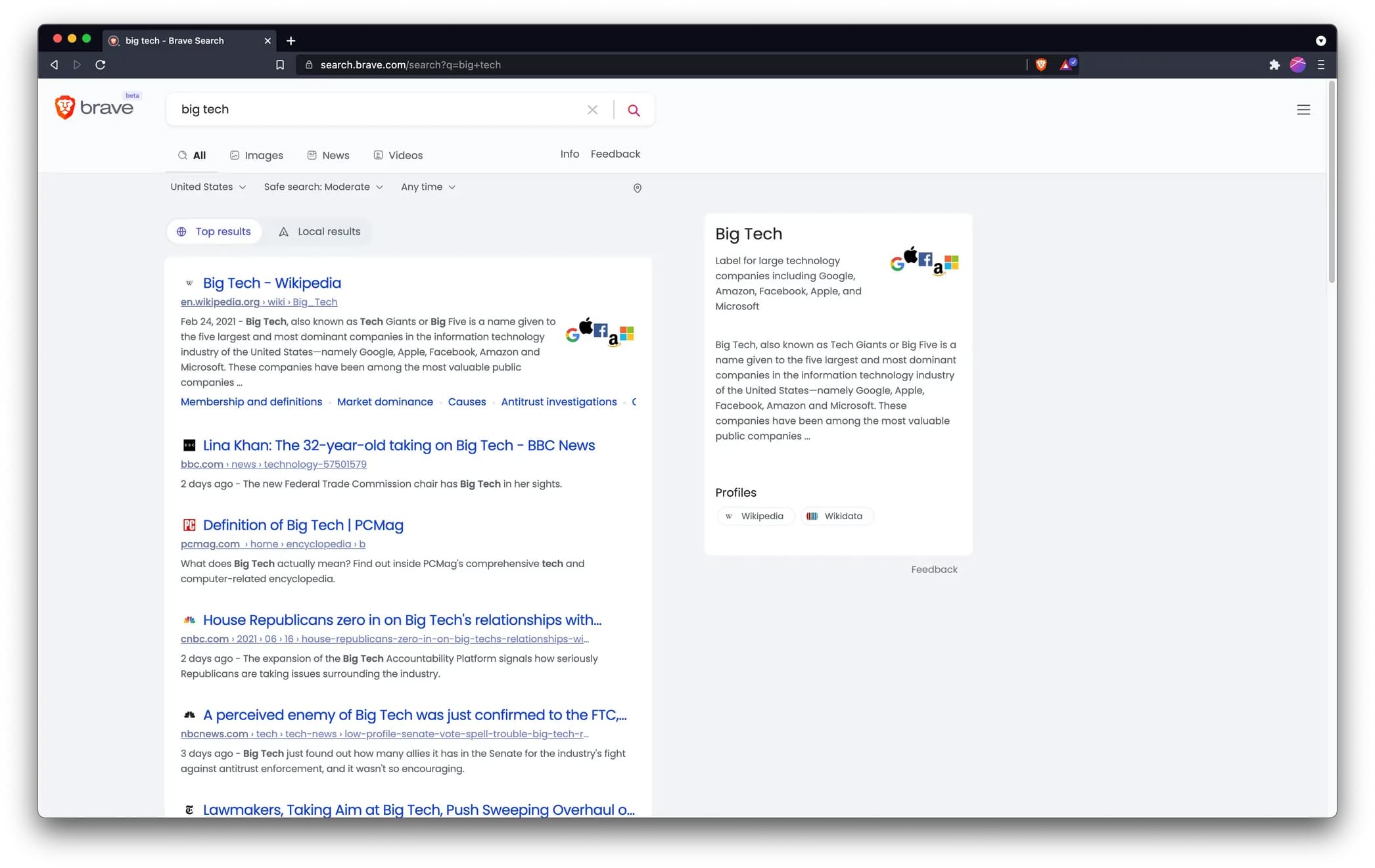
No search engine is bigger than the powerful Google Search. Nothing comes close.
Brave Software, Inc. is the creator of the Brave, the free and open-source web browser. In terms of size, Brave is a speck if compared to Google. Probably, a nothing when considering reach and resources. But what Brave has at its disposal that Google won't dare to venture to go against, is an approach to privacy.
Brave is a privacy focused browser, which distinguishes itself from other browsers by automatically blocking online advertisements and website trackers by default
And here, the company behind the browser is introducing a search engine of its own.
After testing it for quite a while with a small number of invited users, Brave is launching the Brave Search to everyone as a public beta, through its official browser apps and also through search.brave.com.
This project happens following Brave's acquisition of Cliqz, an anti-tracking browser with a built-in search engine.
The Brave Search search engine that is created, is pretty similar to DuckDuck.
The two share the same principle, in which they don't like Google, and want to be the alternatives to Google Search, Microsoft Bing and others.
They want to be the choice for those who are concerned about data privacy.
Brave Search is built on top of a completely independent index, and doesn’t track users, their searches, or their clicks.
This is why Brave claims that the Brave Search search engine does not collect its users' IP addresses, or use any of users' personal data to improve search results.
In other words, Brave is saying that users can remain anonymous while using the search engine.
And pair that with Brave Browser, which can block most trackers, advertisements, and unnecessary cookies, users can expect to navigate the internet without having their personal data being commoditized.
Another way of saying it, users can benefit from the integrated Brave Search in the Brave browser experience.

Brave said that:
Brave Search beta is based on an independent index, the first of its kind. However, for some queries, Brave can anonymously check our search results against third-party results, and mix them on the results page. This mixing is a means-to-an-end toward 100% independence. For full transparency and to measure Brave’s progress toward that goal, Brave provides a 'Results independence' metric. This anonymous calculation shows the % of search results that come from Brave versus these third parties. Note that no matter the independence metric, your privacy will always be 100%."
Brave has been into privacy for quite a long time, and with that, it's among a number of companies that put privacy as their top priority.
Other most notable, include Apple, which has announced App Tracking Transparency, which is giving users the choice for being tracked or not, and iCloud+ with Private Relay, which masks the user’s IP address to prevent tracking between apps and websites.
